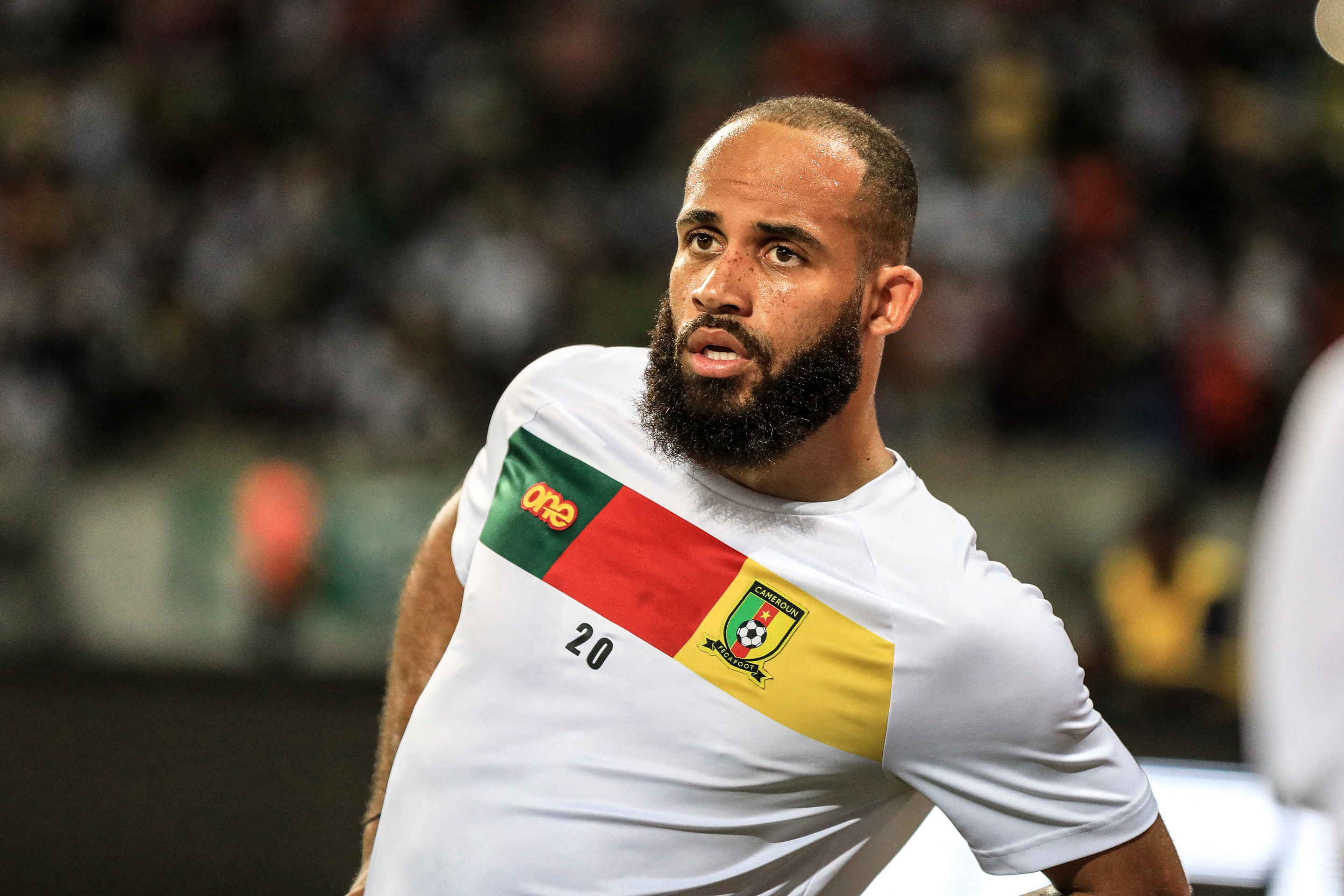Ranked! The 50 best football teams of all time
The best football teams ever – club and country – following rounds and rounds of arguments from the FourFourTwo team
40. Arsenal 1930-35
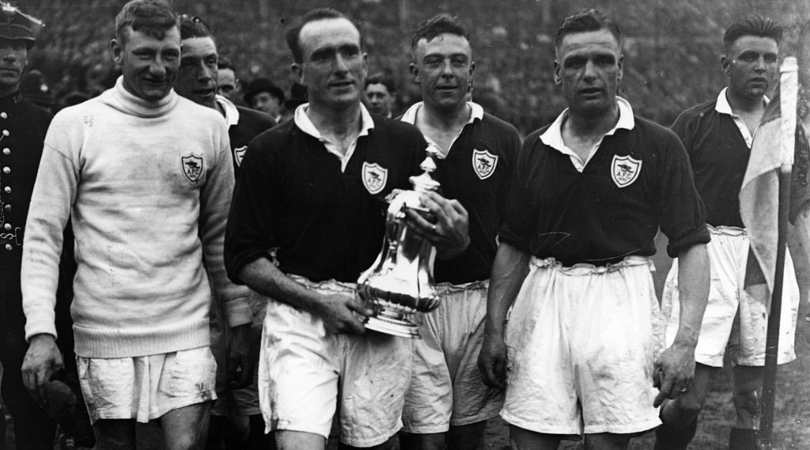
Deploying the W-M formation to perfection, Herbert Chapman's Arsenal team routinely flattened opponents at their Art Deco, palatial Highbury home in the early '30s with a fast, direct and uncompromising brand of football.
The Gunners had a blueprint for the 'eight-second goal.' It sounded almost too easy, but Chapman's men – who won the FA Cup in 1930 and the league championship a year later – preferred to keep things simple, and devastatingly effective.
Following Chapman's untimely death from pneumonia, his successor George Allison added a more physical edge. But Arsenal lost none of their potency, completing a hat-trick of title triumphs in 1935.
39. Ajax 1992-96
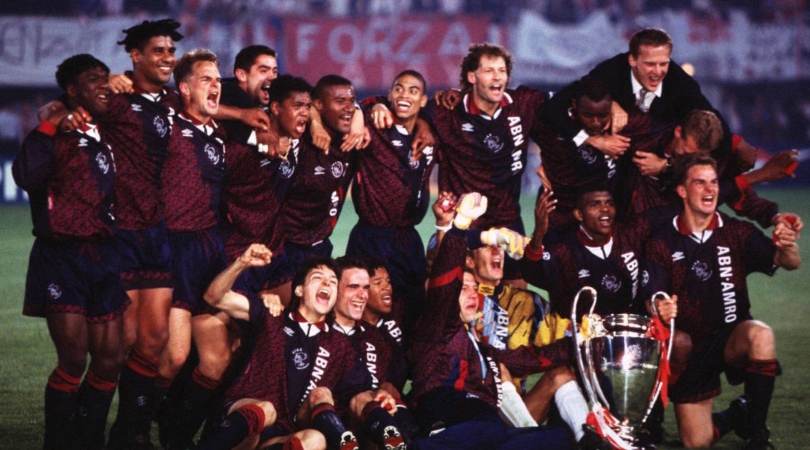
When Louis van Gaal took over in 1991, Ajax had won one European trophy – the 1987 Cup Winners’ Cup – since the 1970s’ golden era of Michels and Cruyff.
The situation wasn’t as dire as it looked. The side that won the 1992 UEFA Cup starred Dennis Bergkamp, Danny Blind, Wim Jonk, Aron Winter and Frank de Boer. The team that won the 1995 Champions League – earning Van Gaal his move to Barcelona – featured Edwin van der Sar, Frank Rijkaard, Edgar Davids, Clarence Seedorf, Patrick Kluivert, Jari Litmanen and Marc Overmars.
Playing a 3-4-3 or 3-1-2-3-1, Van Gaal’s players enjoyed less freedom than Ajax’s Total Football stars, yet were regularly devastating.
38. Brazil 1982
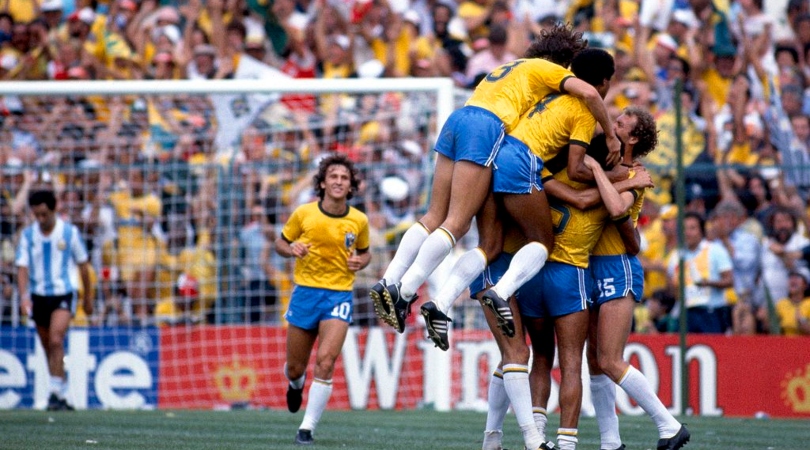
Rarely can a team that achieved so little have been held in such high regard by so many for so long. The Observer’s Hugh McIlvanney called Tele Santana's tournament favourites "the most gifted collection of footballers in the game, the unmistakable nucleus of a great team".
Santana eschewed the failed 1970s Seleçao aesthetic of aping European muscularity, instead entrusting ball-players like Flamengo fantasista Zico, laconic left-sider Eder, Roma playmaker Falcao and iconic smoking doctor Socrates.
The best features, fun and footballing quizzes, straight to your inbox every week.
Brazil sizzled in Seville, beating the Soviet Union 2-1 before steaming past Scotland (4-1) and New Zealand (4-0). Argentina were then beaten 3-1 but disaster struck when they lost 3-2 to a limited but organised Italy. Zico called it “the day football died”.
37. Manchester United 1965-68
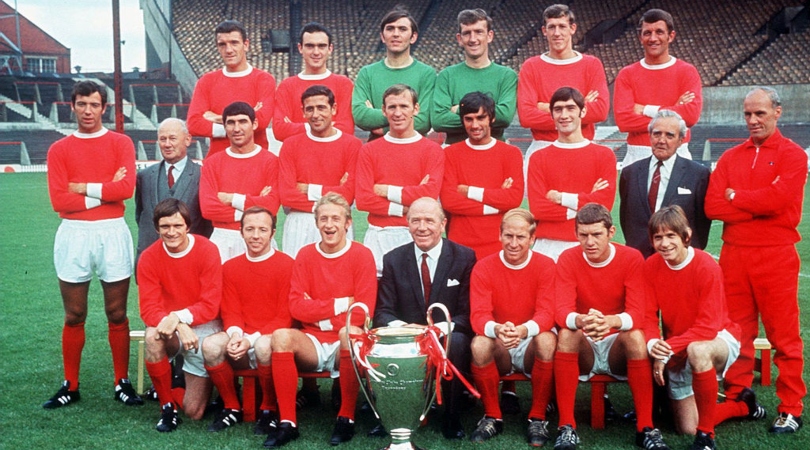
Ten years after the Munich air crash wiped out the Busby Babes, Matt Busby's Manchester United triumphed 4-1 at Wembley against Benfica in the 1968 European Cup Final in one of the most emotive nights in the history of British football.
After winning the title in 1964/65 and then again in 1966/67, Busby's third great United side finally grabbed the biggest prize of all. With the holy trinity of Best, Law (although he missed the final due to injury) and Charlton – arguably the finest trio of forwards ever accumulated in one club attack – pulling the strings, Old Trafford was the place to be in the swinging ‘60s.
36. Feyenoord 1968-71
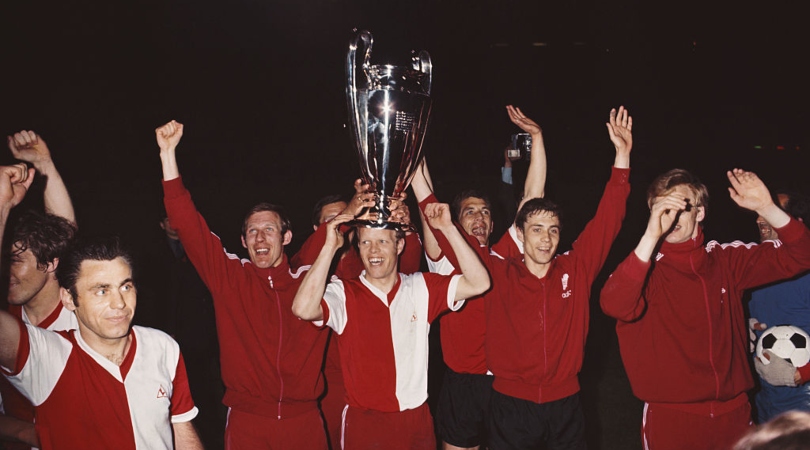
Common football lore has it that Ajax invented the modern 4-3-3 at the same time as inventing Total Football. Well, those pioneering Amsterdammers may have done the latter, but they certainly didn’t do the former. That was their great rivals Feyenoord, who won two Eredivisie titles and the 1970 European Cup.
It was a 1970 Dutch Cup game that persuaded Ajax's Rinus Michels to revert from his hitherto-favoured 4-2-4 formation. Ajax ultimately drew level, but Feyenoord gaffer Ernst Happel had delivered the tactical masterstroke of dropping a forward back into the midfield that would come to define Dutch football.
“The game always unfolds in the midfield,” Happel reasoned, a philosophy which has dominated football ever since.
35. France 1982–86
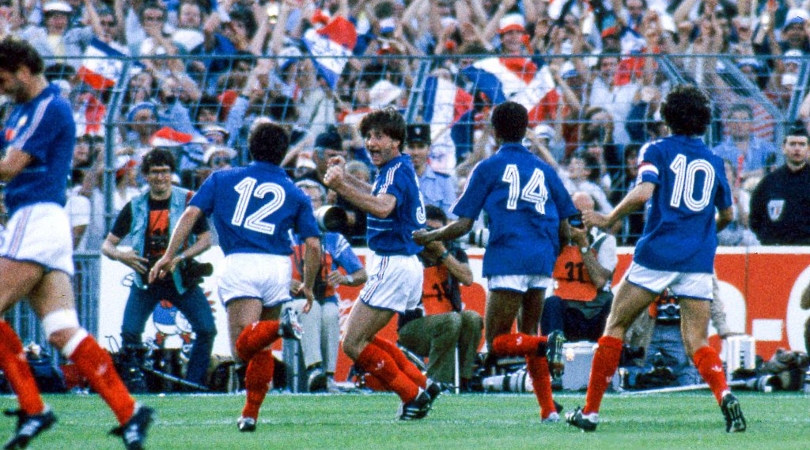
Remember Platini not as a UEFA suit but one of the finest players to ever lace up boots. Numerically and positionally a No.10, he led Alain Giresse, Jean Tigana and Luis Fernandez in les Bleus’ “Carre Magique” (Magic Square) midfield that waltzed away with the Euro 84 crown on home turf.
They might have achieved more. At Spain 82, Michel Hidalgo’s team had reached the semi-finals only to be brutally halted by the West Germans. Four years later in Mexico, having knocked out holders Italy and the mighty Brazil, the European champions were again stopped in the semis by their Teutonic neighbours – denying the planet a Platini-Maradona face-off in the final.
34. PSV 1985-89
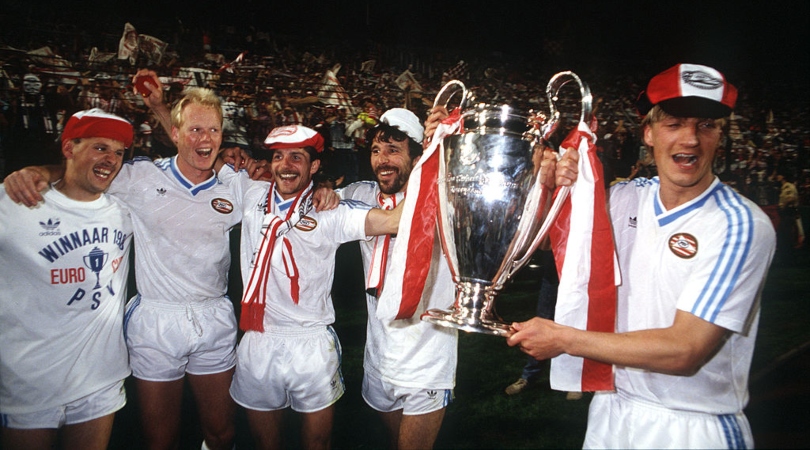
In 1988, PSV won the European Cup after drawing all five games in the knockout stage and beating Benfica, 6-5 in the shootout.
Though vilified as dour and defensive, they played some fluent football in the late 1980s when their roster featured such dullards as Ruud Gullit, Willy van der Kerkhof, Romario, Ronald Koeman, Soren Lerby and charismatic coach Guus Hiddink, who convinced players that wrestling would improve their strength and balance.
Even without Gullit – sold to Milan for £6m – the treble-winning 1988 side featured four world-class stars: goalkeeper Hans van Breukelen, Belgium international right-back Eric Gerets, elegant centre-back Koeman, and midfield orchestrator Lerby.
33. River Plate 1941-47
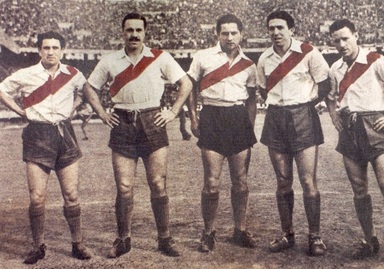
The Maquina were probably South America’s greatest club side. That nickname – the Machine – refers to a stellar attack of Julian Carlos Munoz, Jose Manuel Moreno, Adolfo Pedernera, Angel Labruna and Felix Loustau which only played 18 games together.
The moniker is metaphorically accurate as, with other stars coming through (keeper Amadeo Carrizo, midfielder Nestor Rossi and Alfredo Di Stefano), River Plate were spectacularly efficient, beating local rivals Boca 5-1 in 1941.
After winning three Argentine titles in five years, Pedernera left. Even so, River won the league in 1947. It was a national players’ strike – persuading Di Stefano and Rossi to make lucrative moves to Colombia – that wrecked them.
32. Real Madrid 1984-90
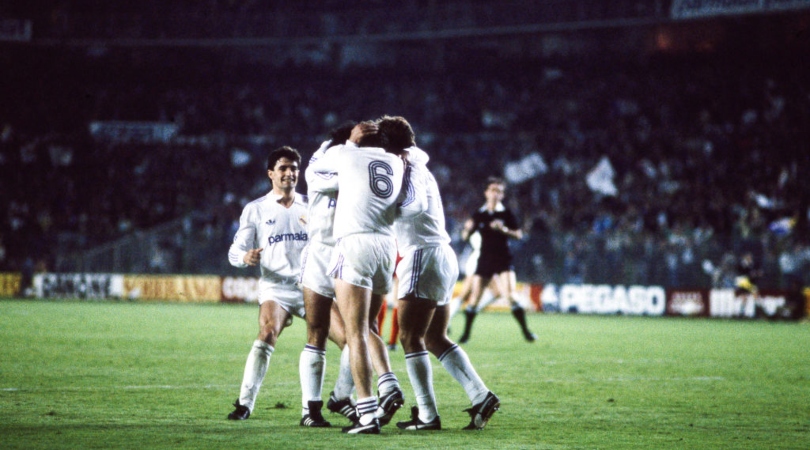
Most great sides have a nickname. The Real Madrid side that won five successive La Liga titles between 1986 and 1990, reached three European Cup semi-finals in a row (1987-1990) and won back-to-back UEFA Cups (1985, 1986) was known as La Quinta del Buitre (the Vulture Squadron) after its talismanic genius, Emilio Butragueno – aka ‘the Vulture’ – and his stellar team-mates, Sanchis, Michel, Martin Vazquez and Miguel Pardeza.
Despite their nickname, the Madrilenos weren’t ruthless enough in the competition the club prized most. Plus, they had the misfortune to come up against Arrigo Sacchi’s Milan twice.
31. Austria 1930-36
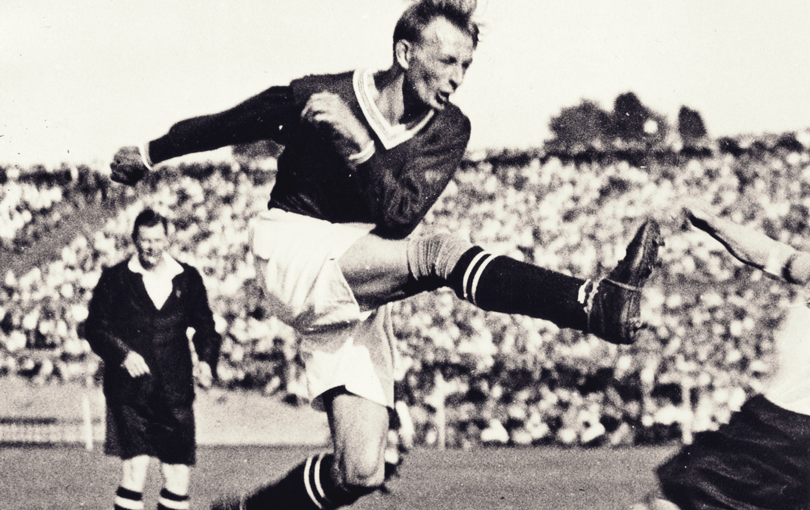
Matthias Sindelar, known as “The Paper Man” due to his frail frame, was the fulcrum of the Wunderteam assembled by manager Hugo Meisl and English coach Jimmy Hogan. All rapid passing and interchanging of positions, they might have ended Anglocentric chauvinism 21 years before Puskas’s Hungary, but ultimately lost 4-3 to England at Stamford Bridge.
Austria opted not to travel to the 1930 World Cup in Uruguay, but the Wunderteam were backed to win the 1934 World Cup in Mussolini’s Italy. However, they lost a semi-final to the hosts in questionable fashion: Sindelar was kicked while lying on the ground following an early reducer, before a disputed goal sent Italy through.
Current page: Best football teams ever: 40-31
Prev Page Best football teams ever: 50-41 Next Page Best football teams ever: 30-21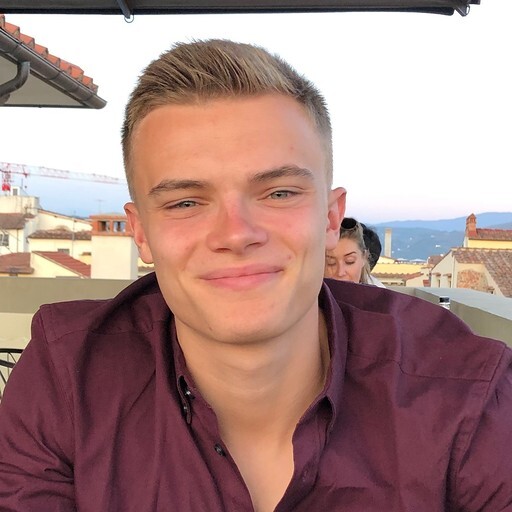
Ryan is a staff writer for FourFourTwo, joining the team full-time in October 2022. He first joined Future in December 2020, working across FourFourTwo, Golf Monthly, Rugby World and Advnture's websites, before eventually earning himself a position with FourFourTwo permanently. After graduating from Cardiff University with a degree in Journalism and Communications, Ryan earned a NCTJ qualification to further develop as a writer while a Trainee News Writer at Future.
